Editor’s Note: In April 2016, Cherin C. Poovey (P ’08), then of Wake Forest Magazine, sat down with Ed Wilson in his Z. Smith Reynolds Library office to ask him 10 questions, republished below is the 2016 piece about their conversation.
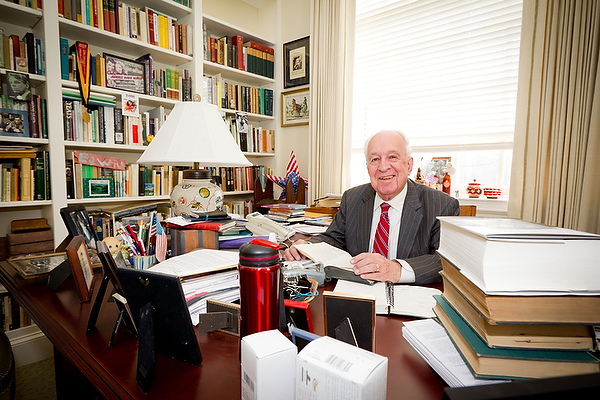
Ed Wilson in his office at the Z. Smith Reynolds Library.
Your ability to remember students’ names is legendary. How do you do it?
When I was much younger I did, I think, remember the names of people I met. Whenever I had a new class, when I was in my 30s, 40s and 50s, I would make a point to try to get to know them all. As time goes by, and I think this is the result of age that anybody experiences, as time goes by it is harder to remember the names and faces of the people I had met.
In fact I sometimes remember students from 50 years ago more vividly than I remember students that I met last week. And it bothers me that, walking around campus every day as I do, I see these young people, boys and girls who maybe I met last week, and I can’t quite remember who they are and I have to be reminded. Because I like to know people. I think it’s very important to know people. So I must admit I’m not quite what I used to be in that area. And I regret that.
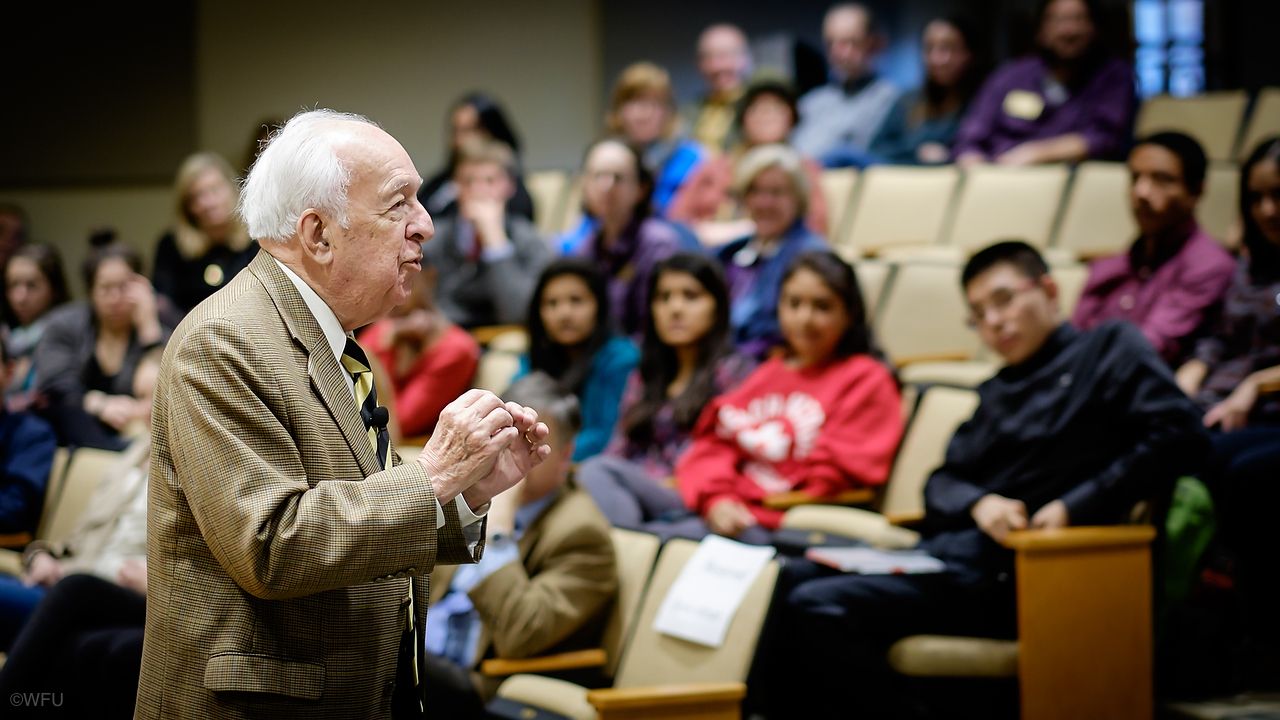
Dr. Wilson talking about the essence of Wake Forest with students, faculty and staff.
Is it true you were once a foreign correspondent?
I was never a foreign correspondent, although when I was a student in the college on the Old Campus I thought I wanted to be a foreign correspondent. I think anybody who lived as I did, as a boy in the 1930s and as a young man in the 1940s, became fascinated and concerned about what was going on in Europe. It was a time, obviously, of great change — I don’t need to say that — the years before and during the second World War.
I read newspapers regularly, and I thought about what was happening in Europe — in Germany, Russia, Spain, all those countries. And I read one book that probably no one else has ever heard of but strangely it had a great impression on me. It was a book called “Days of Our Years” by a man named Pierre van Paassen, who was European. And I still remember reading that book about Europe, thinking to myself I would like to go there, and I would like to see what was going on.
I was taking all the journalism courses that were available. I was an English major but I thought I was pointed toward journalism as a career, not teaching. That came later. I said to myself how great it would be to move around the world and report on the world’s events. At that time a man named Edward R. Murrow was broadcasting from Europe, and I thought to have the kind of job he had would be almost ideal. But instead of becoming a foreign correspondent I went into the Navy and was in World War II, then came back and began to teach. I’ve been teaching ever since. So being a correspondent like that was a dream rather than a reality.
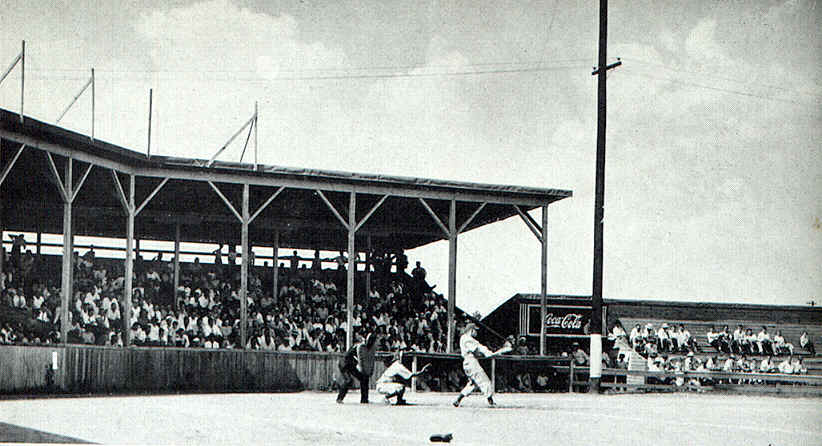
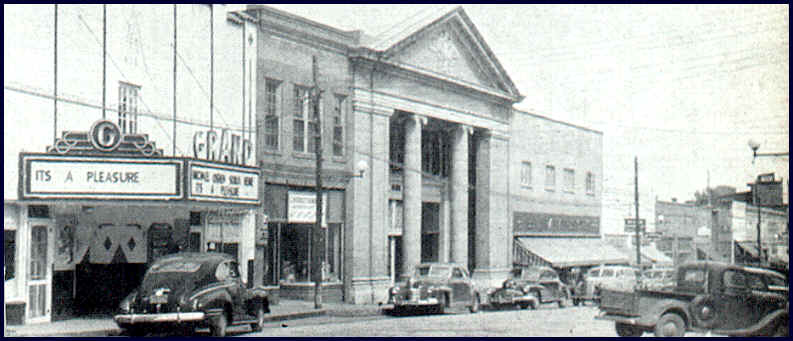
Tri-City Baseball Park, home of the Tri-City "Trips" Triplets in Leaksville, North Carolina (top) and The Grand Theater downtown in the 1940s. (Photos courtesy Herman Searcy)
What is your fondest memory of growing up in Leaksville, North Carolina?
I have many fond memories of course, of my family. I had three brothers and a sister, our father and mother, all of us lived together in a house right near downtown. I have many good memories of things we did as a family.
I suppose, to be honest about it, what I remember most is that the movie theater was downtown about three blocks from where we lived, and my parents were very generous about letting me go to the movies. I used to go at that time for about 10 cents when we were young. Many of my fondest memories from the time I was 6 years old are of going down the street just before 7 o’clock at night to see movies. And I guess I saw three or four movies every week.
The only movies that my father would not allow me to go to were the movies that starred Mae West. He associated her with sin. So I didn’t get to see Mae West but I saw everybody else. So I had a chance to see all the movies of the ’30s and early ’40s and remember them. I remember the faces of the actors and actresses better than I remember the faces of today’s actors and actresses. Of course there was no television, and that gave me a kind of grounding in movies that I’ve never lost.
I also went regularly to baseball games. I love baseball. I followed all of the Major League baseball teams and learned the batting averages of the players. We had a Class D minor league team in Leaksville, and I often went to see the games. Life in a small town, and many people would realize this, life in a small town in the 1930s was glamorous in its own way.
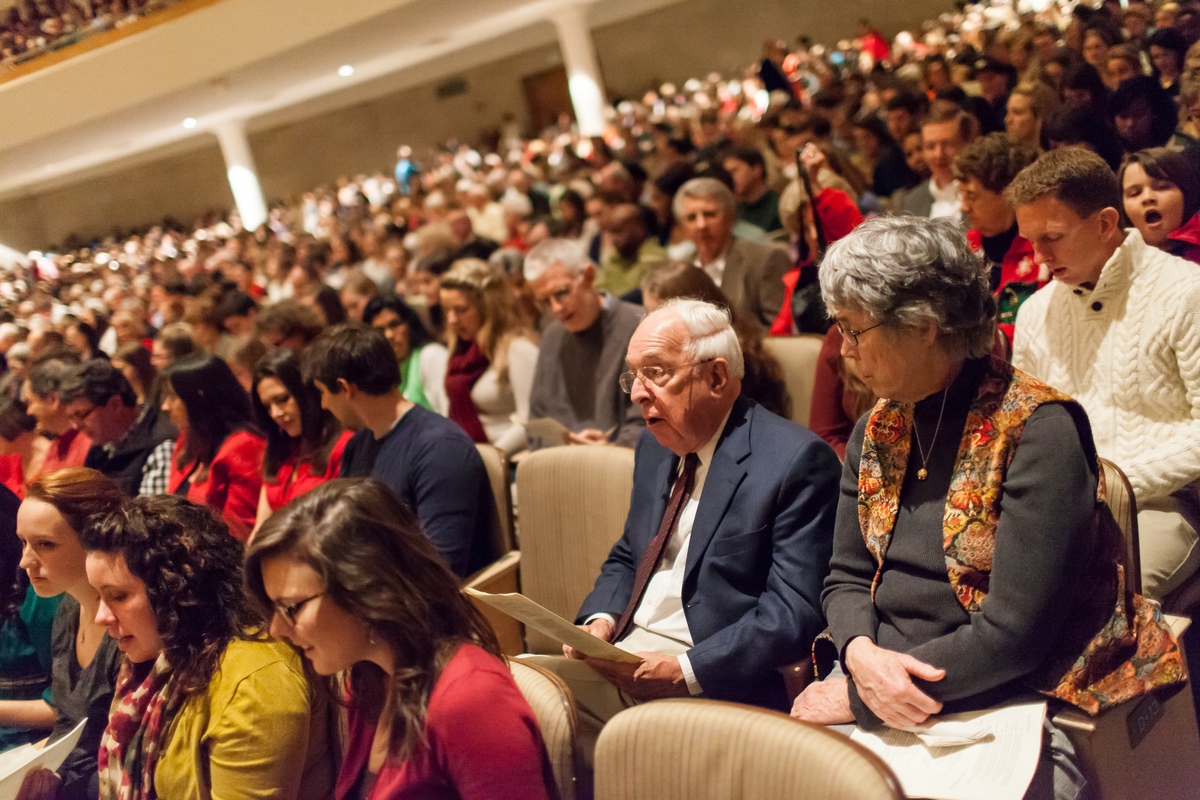
Dr. Wilson and Emily Herring Wilson (MA '62 ) attend the 2012 Lovefeast.
What is a sentimental item you keep in your office?
Most of the sentimental items — my office is cluttered with many things — but most of the sentimental items that you would notice if you looked around are pictures of my wife and family. I have pictures of them at almost every age. To look upon them gives me pleasure, even on a dark day. And I must have about 10-12 pictures right in front of me.
There’s a lot of other stuff too, but mainly I think memories of my family. I have, for example, a picture of when the five of us took a vacation in France; this turned out so nicely. Eddie is in Leaksville where I grew up, Sally is in Durham and Julie is in Asheville, so they’re all in North Carolina. And Emily and I see a lot of them.
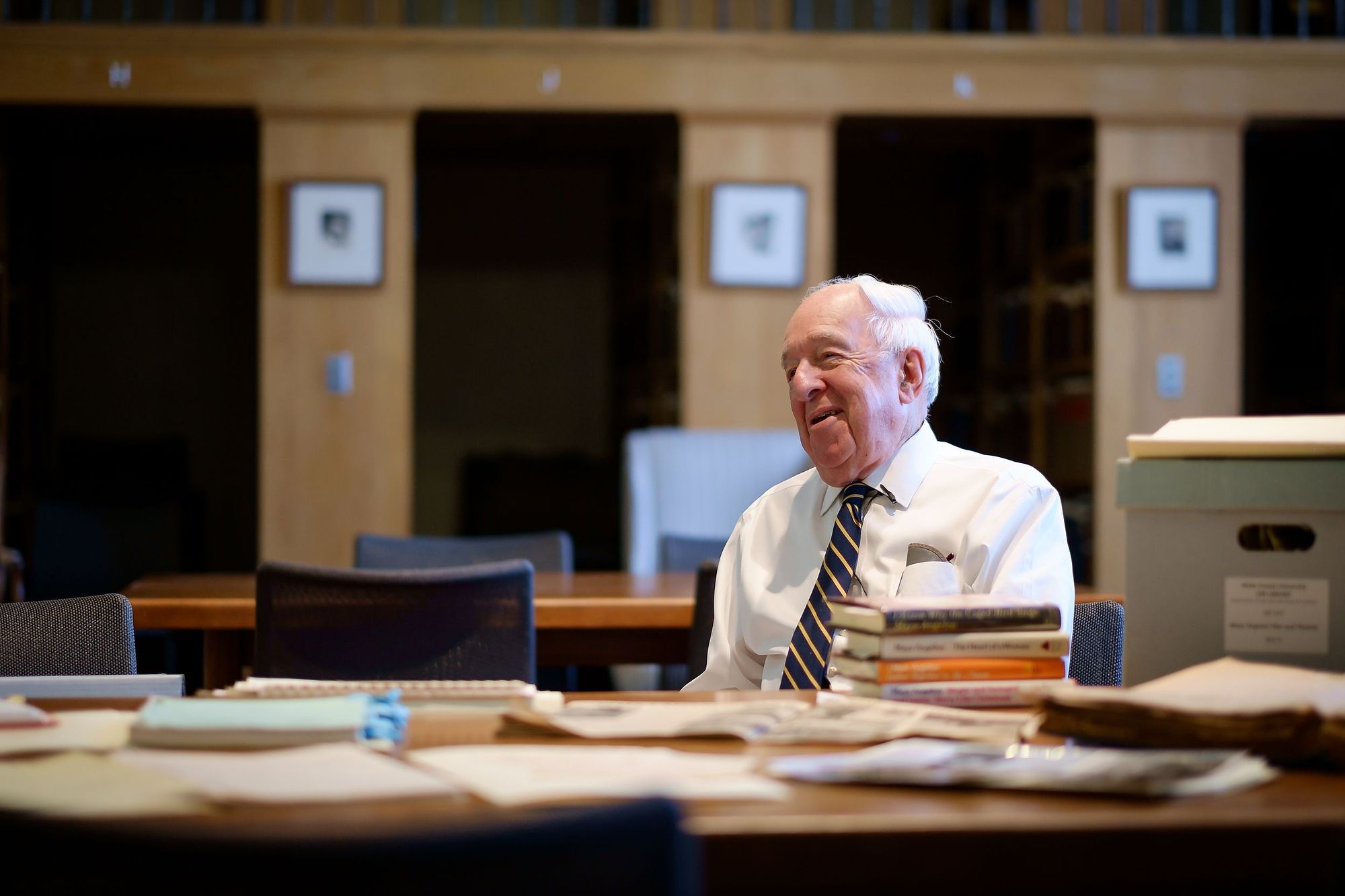
Which book do you always have nearby?
I guess if I were to mention two books that I always have nearby, one would be the poems of William Butler Yeats and the other would be the plays of Shakespeare. And I think I turn to Yeats and Shakespeare more often than I do any other writers; Yeats for the sheer beauty of his poetry, and Shakespeare, this is obvious to say, for his incomparable literature and insights into the human condition. I began to love Shakespeare so much as a fairly small boy when I tried to memorize as many of the passages as I could. Yeats came along a little later.

Do you have a favorite poem to recite?
I think perhaps in some ways my favorite poem is Wordsworth’s Immortality Ode, “Ode: Intimations of Immortality from Recollections of Early Childhood.” I think perhaps that’s my favorite poem but it is a rather long poem so I would tend not to recite that, except in part. I think the poem I like most to recite is a poem by Yeats called “The Song of Wandering Aengus.” ‘I went out to the hazel wood, Because a fire was in my head, And cut and peeled a hazel wand, And hooked a berry to a thread …” It’s easy to recite.
What is a place or activity that brings you peace?
I think I am most peaceful when I listen to classical music. I went to hear the symphony downtown at Stevens Center night before last and the symphony played and the chorale sang Brahms’ “Requiem,” which is a beautiful and majestic piece. To be there for an hour or so in the theater, hearing the requiem, was to experience the kind of peace that is almost like no other. And I treasure so many memories from Secrest Series concerts through the years. I think it is in music that, for me at least, a sense of well-being most likely comes.
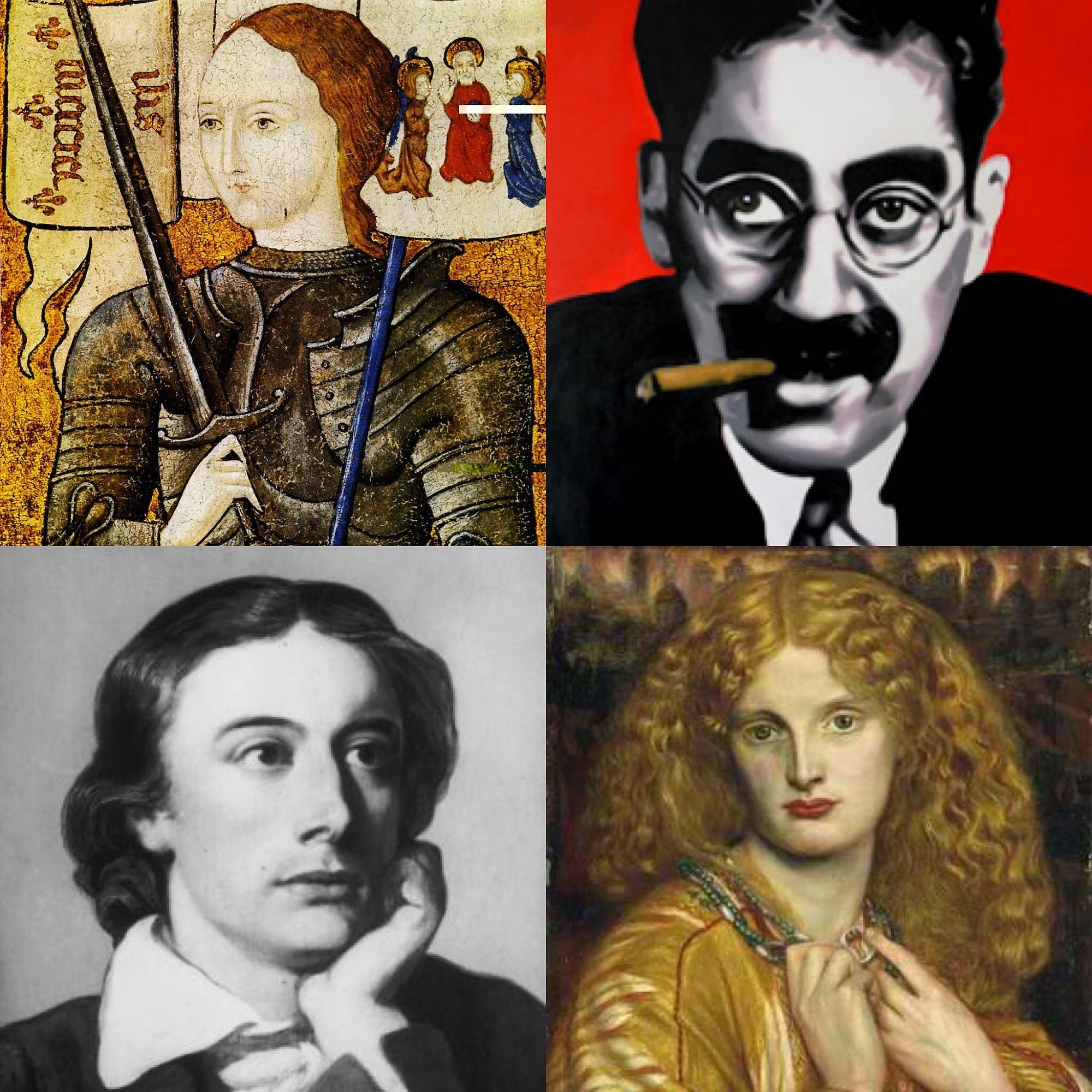
Clockwise from top left: Joan of Arc, Groucho Marx, Helen of Troy and John Keats
If you could invite any six people to dinner …
I should say my family, but that’s pretty obvious. And then I say well, I would invite six of my favorite colleagues, but then how would number seven and number eight feel about being left out? Or six of my favorite former students, but I wouldn’t dare make that kind of selection. So I would invite people from history.
I would invite Franklin D. Roosevelt, the first American president I voted for, and John Keats, the poet whom I taught for many years and who had an incomparable spirit. And Leo Tolstoy, who wrote the fiction that I most admire. And lest I forget, I would invite Helen of Troy, and I would invite Joan of Arc. So there I am with two remarkable women and three remarkable men, and then I think, just in case the conversation got too heavy, just to lighten things up I would invite Groucho Marx.
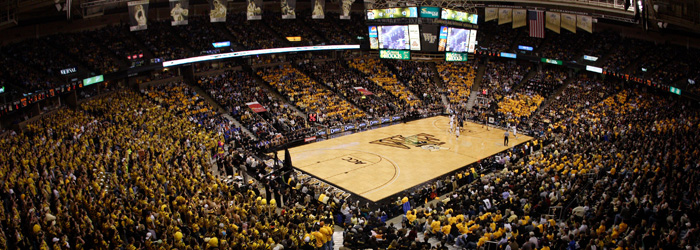
Lawrence Joel Veterans Memorial Coliseum (Photo Wake Forest Athletics)
Where might someone be surprised to run into you?
A person who might have known me as a teacher might be surprised to see me at every home basketball game. I’ve been sitting in the same seats in the coliseum since the coliseum was built. It would take an emergency at home for me not to go. I really think that the life of a college ought to be experienced in its totality, and as I’ve indicated I love literature and music and movies, but I also love sports. I am not an athlete myself, but from the outside I have been able to admire great athletes in the same way I admire a great pianist.
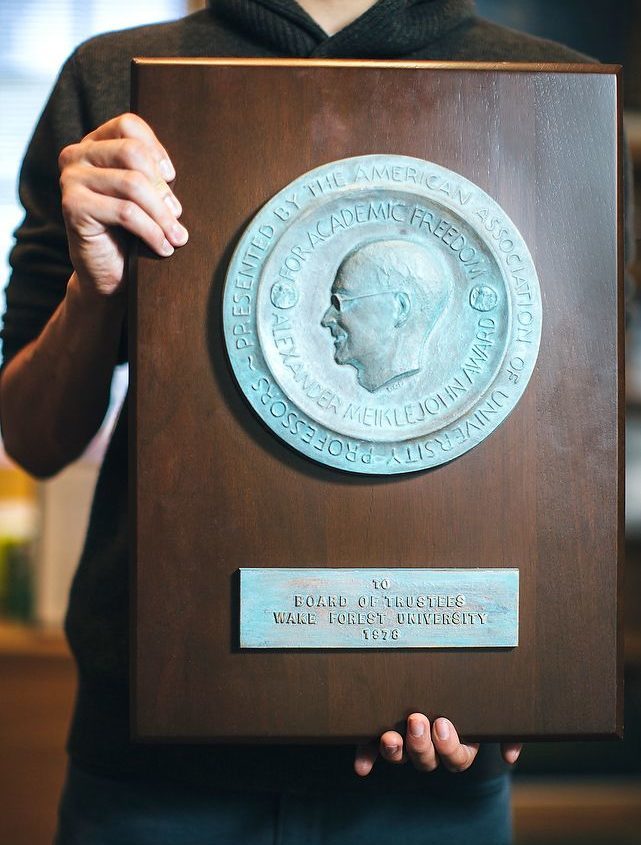
The Alexander Meiklejohn Award for Academic Freedom (Photo by Sean Wilkinson '15)
In what moment were you most proud of Wake Forest?
One time I remember with special fondness and appreciation is when we were awarded the Meiklejohn Award (in 1978). To be at Yale University with President (James Ralph) Scales and Mr. (James) Mason, who was chairman of the board of trustees, and have Wake Forest recognized at another important university with a national honor for what was substantially our academic freedom, was very thrilling.
Because Wake Forest had stood its ground against criticism. Wake Forest had taken a stand. It had accepted the idea of what Dr. Scales called an “open platform” where people were free to speak even if they were people that you had no admiration for.
I think to be there that day in New Haven and for Wake Forest to get that award made a great difference to me, as someone who had lived at Wake Forest all his life, and who thought that academic freedom was the very basis of life at a college.
I think it means all the more to me now because there has been so much in the newspapers in the last year or two about denial of academic freedom at different colleges all across the country. And for the college that I loved and believed in to be honored for that kind of freedom was thrilling.
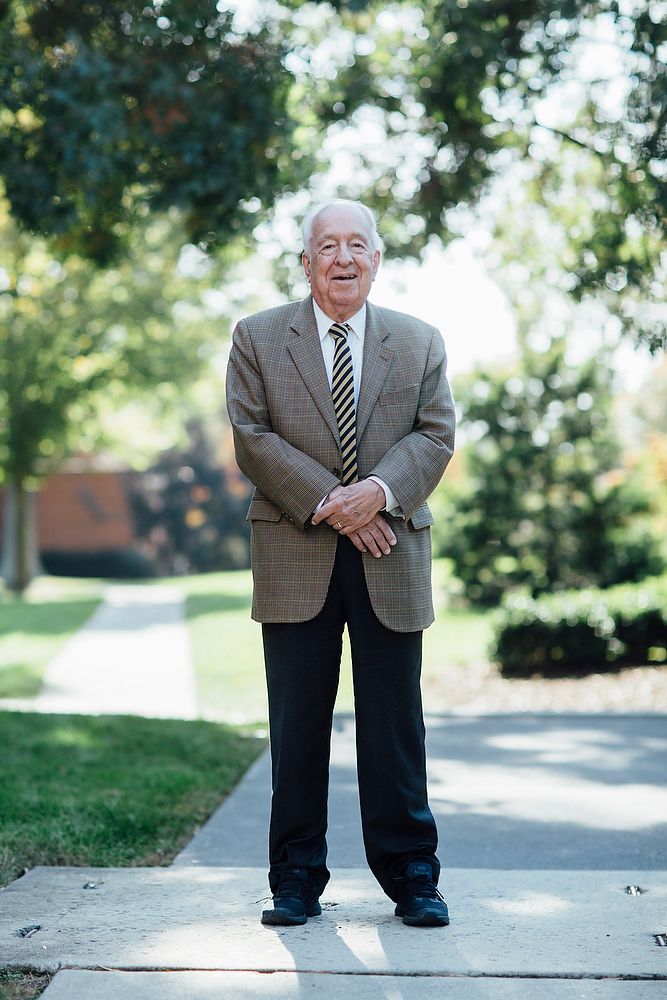
Dr. Wilson, man about campus in his black tennis shoes. (Photo by Sean Wilkinson '15)


